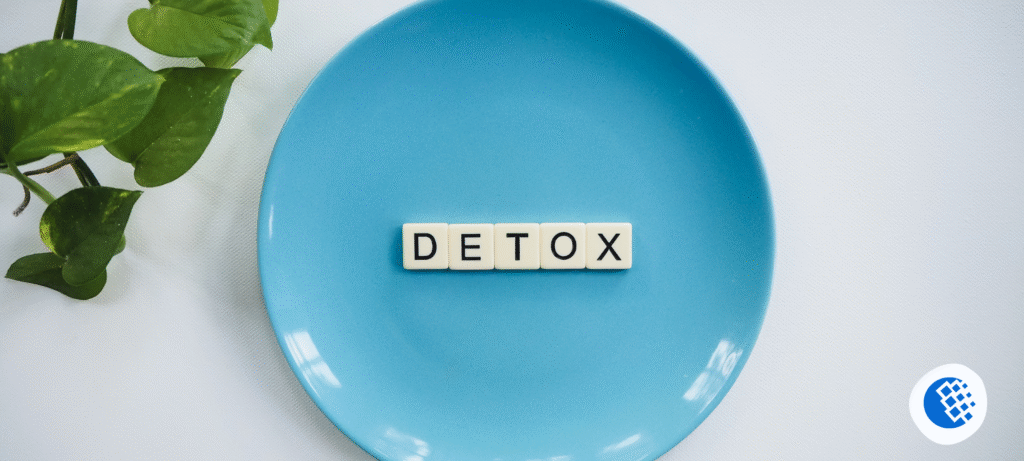If you’ve ever found yourself scrolling through your phone until midnight and waking up more tired than rested, you’re not alone. As part of the EasyGrader.net team, we spend a lot of time online—and we know firsthand how hard it can be to unplug when your work, communication, and entertainment all happen through screens.
That’s why we started experimenting with digital detox evening routines, and the results were surprising. Better sleep, sharper focus, and—maybe most important—feeling present again.
This guide is for busy people like teachers, students, freelancers, and professionals who don’t want to throw their phone out the window but do want some boundaries back.
Why You Might Need a Digital Detox (Especially at Night)
You might not notice the effects of constant digital stimulation right away, but over time, screen time late in the day contributes to:
- Poor sleep quality (blue light suppresses melatonin)
- Heightened stress levels
- Difficulty focusing the next morning
- Less time for actual rest, hobbies, or relationships
And if you’re trying to get better grades or simply show up sharper for work the next day, these consequences add up quickly.
The good news? You don’t have to completely disconnect from tech—you just need a better evening routine.
Evening Routine Ideas That Actually Work
Below are practical, low-effort routines you can adopt—starting tonight.
1. Set a “Digital Sunset” Time
Choose a time each evening—ideally 1–2 hours before bed—when all screens are off.
Even if you start with just 30 minutes of no screens, you’ll notice the difference. Set a recurring reminder or alarm on your phone to begin the transition.
Pro tip: If you’re managing grades, try wrapping up tasks using tools like Google Docs for grading before your digital sunset starts.
2. Use an Old-School Alarm Clock
One reason we keep phones in bed is to use them as alarms. Swapping it out for a $10 analog clock removes the temptation to scroll Instagram “just for a second.”
It also sets a clearer boundary between your sleep space and your digital life.
3. Replace Scrolling with Analog Activities
Here are some effective and enjoyable ways to spend screen-free time:
- Read a physical book or magazine
- Journal your wins and thoughts
- Try a crossword or Sudoku
- Do a short stretch or yoga routine
- Tidy your room (decluttering is oddly calming)
This mirrors the structure of Cornell notes we’ve written about in our guide on how to take Cornell notes on iPad. Focused, structured activities lead to better mental clarity.
4. Create a Bedtime Ritual
Your brain loves routine. Try stacking screen-free habits into a consistent wind-down flow like:
- Take a warm shower
- Light a candle or diffuse lavender oil
- Put your phone in a different room
- Write your to-do list for tomorrow
- Get into bed and read one chapter of a book
5. Try “Tech Zoning” Your Space
One simple trick is to make your bedroom a no-phone zone. Keep tech use limited to specific areas like your desk or kitchen counter.
If you live in a small space or share with others, even setting a small boundary like “no scrolling once in bed” can be enough.
This technique works especially well for students trying to raise their GPA through improved study/sleep balance.
6. Use Tech to Detox from Tech (Ironically)
Some apps can help you stay off your devices:
- Forest – Encourages focus by growing a digital tree when you stay offline
- Freedom – Blocks distracting websites and apps at scheduled times
- SleepTown – Builds virtual houses based on how consistently you avoid phone use before bed
What I Personally Noticed After 7 Days of This
After trying a digital detox routine for just one week, I noticed:
- I fell asleep faster and stayed asleep longer
- I didn’t check my phone first thing in the morning
- I woke up feeling present, not anxious
- I had more creative energy for writing and planning the next day
It reminded me why breaks matter, especially when you’re constantly plugged in for work, teaching, or learning.
Start Small – Then Build
You don’t need to completely reinvent your life. Just start with one step:
- Set a no-phone-after-9pm rule
- Leave your phone in the kitchen tonight
- Pick one book to read instead of watching YouTube
The idea isn’t perfection—it’s intentionality. Over time, these small changes build the space you need to rest, reset, and refocus.
Related Resources on EasyGrader.net
If you’re working toward better balance and performance, you might also enjoy:
- How to Get Good Grades in College
- How to Raise Your GPA
- Which Grades Do Colleges Look At?
- Grading Tips for Teachers
And of course, if you’re a teacher or student looking to calculate grades quickly, try our EasyGrader.net calculator – simple, fast, and stress-free.
Final Thoughts from the EasyGrader.net Team
It’s easy to feel like we have to be “on” 24/7—but the truth is, unplugging can be a productivity strategy, not just a wellness trend. You don’t need to quit tech—you just need to learn how to rest from it.
Digital detox evening routines aren’t about being perfect. They’re about being present—so you can wake up clearer, calmer, and ready for what matters most.
Let us know if you’d like a printable version of these detox steps—we’re happy to share what’s worked for us.





